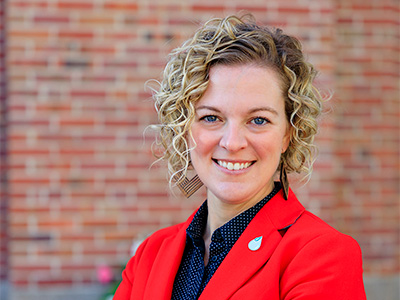LINCOLN, Neb. – Amidst today’s global challenges—including the escalated need for food and nutrition security under mounting population pressure–the mission of the Daugherty Water for Food Global Institute (DWFI) at the University of Nebraska has never been more vital. The institute’s recent annual report marks a year of critical research, capacity building and global thought leadership, and details significant progress across the Institute’s three core focus areas.
“Throughout its 15-year history, the institute has leveraged world-class University of Nebraska research; state expertise in agricultural and water resource management; and private sector partnerships to make real progress toward a water- and food-secure future for all,” said DWFI Executive Director Peter McCornick. The report also honors the nearly decade-long leadership of Dr. McCornick, who will retire from the University of Nebraska at the end of this year.
Key Outcomes and Impact Areas in FY 2025
1. Water management for high-productivity commercial agriculture
- DWFI continues to solidify its expertise in climate-smart agriculture by innovating and implementing water-wise technologies and decision support systems. This year, DWFI reached several key milestones to help producers improve efficiency, reduce risk, and build resilience.
- The DAWN project is nearing completion and helping U.S. Corn Belt farmers make more informed decisions to increase profitability and sustainability.
- DWFI expanded its flux tower network to the Upper Colorado River Basin, providing crucial data for optimizing irrigation in more U.S. states.
- DWFI refined USDA models for crops like corn and soy to give producers more accurate data on precise water needs, bridging the gap between research and on-farm use.
2. Sustainable Smallholder Agricultural Water Management
Smallholder farmers produce a large share of the world’s food, yet many lack dependable access to water. This year, DWFI advanced partnerships and innovations that support agricultural climate resiliency across developing regions through practical, scalable approaches.
- Through a new Gates Foundation grant awarded last December, DWFI aims to expand Irrigation as a Service (IaaS) in sub-Saharan Africa, a promising solution to make irrigation more accessible to smallholder farmers.
- DWFI brought together business entrepreneurs from seven countries to foster collaboration around critical and nuanced smallholder irrigation solutions.
- DWFI published new reports exploring the costs and scalability of IaaS business models.
3. Environmental and Human Health in Agricultural Systems
Through science, policy and education, DWFI deepened its focus on the critical nexus of water, the environment and human health, ensuring agriculture remains part of the solution.
- The BioWRAP project is working to repurpose chicken feather waste into spray-on bioplastics, offering a sustainable way to protect soil, control weeds and manage water.
- Through its Water, Climate and Health Program, DWFI is investigating irrigation’s effects on heat stress and public health in the U.S. Great Plains and utilizing Earth observations for improved environmental health.
DWFI continues to prioritize education, capacity building and workforce development, as well as communications and convening, which are cross-cutting themes woven throughout all its initiatives. This year, the institute welcomed eight new faculty fellows, bringing its total to more than 130 University of Nebraska faculty. DWFI also supported 28 students conducting mission-relevant research. Its 2025 Water for Food Global Conference brought together 350 thought leaders from nearly 30 countries working toward the same goal of feeding our growing planet with less pressure on our water resources.
“As I conclude my time at DWFI, I am incredibly proud of our 15 years of progress and have every confidence that the institute and our global partners will continue to drive meaningful impact,” said Peter G. McCornick, executive director of DWFI.
DWFI’s 2024-2025 annual report can be found online at go.unl.edu/annualreport.


